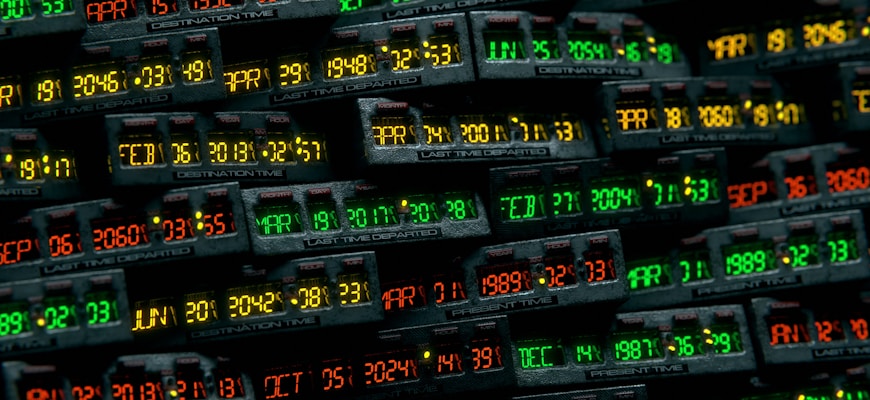How NFT Market Trends Are Influencing the Broader Crypto Space

- The Rise of NFTs: A Game-Changer in the Crypto World
- Exploring the Impact of NFT Market Trends on Cryptocurrency Values
- NFTs: Shaping the Future of Digital Ownership
- How NFTs are Revolutionizing the Way We Invest in Cryptocurrency
- The Intersection of NFTs and Traditional Crypto Assets
- Analyzing the Ripple Effects of NFT Market Trends on the Crypto Landscape
The Rise of NFTs: A Game-Changer in the Crypto World
The rise of Non-Fungible Tokens (NFTs) has been a game-changer in the crypto world, revolutionizing how digital assets are bought, sold, and traded. NFTs are unique digital tokens that represent ownership of a specific item or piece of content, such as art, music, videos, or virtual real estate. Unlike cryptocurrencies like Bitcoin and Ethereum, which are interchangeable, each NFT is one-of-a-kind and cannot be replicated.
NFTs have gained significant popularity in recent years, attracting artists, collectors, and investors looking to capitalize on the growing trend. The ability to verify ownership and authenticity through blockchain technology has made NFTs a desirable asset class for those seeking to invest in digital assets. This surge in interest has not only led to a boom in the NFT market but has also had a ripple effect on the broader crypto space.
One of the key ways in which NFT market trends are influencing the broader crypto space is through increased mainstream adoption. As more artists, musicians, and content creators embrace NFTs as a way to monetize their work, the public’s awareness and acceptance of cryptocurrencies are also growing. This has led to a greater understanding of blockchain technology and its potential applications beyond just digital currencies.
Another way in which NFT market trends are impacting the broader crypto space is through the creation of new decentralized applications (dApps) and platforms that cater specifically to NFTs. These platforms provide a marketplace for buying, selling, and trading NFTs, as well as a platform for creators to showcase their work. This has led to a proliferation of NFT-focused projects and initiatives that are driving innovation and growth within the crypto community.
Overall, the rise of NFTs represents a significant shift in the crypto landscape, highlighting the potential for digital assets to revolutionize how we buy, sell, and trade assets online. As NFTs continue to gain momentum and mainstream acceptance, it is clear that they will play a crucial role in shaping the future of the crypto world.
Exploring the Impact of NFT Market Trends on Cryptocurrency Values
The impact of NFT market trends on cryptocurrency values is a topic of great interest within the digital asset community. As non-fungible tokens continue to gain popularity, their influence on the broader crypto space is becoming more pronounced.
One way in which NFT market trends are affecting cryptocurrency values is through increased demand for certain tokens. As investors flock to NFTs in search of unique digital assets, they often need to purchase cryptocurrencies to participate in NFT transactions. This surge in demand can drive up the value of these cryptocurrencies, creating a ripple effect throughout the market.
Additionally, the success of NFT projects can also boost the overall sentiment around cryptocurrencies. As high-profile NFT sales make headlines and attract mainstream attention, they can bring new participants into the crypto space. This influx of interest can lead to increased trading volumes and liquidity for cryptocurrencies, ultimately impacting their values.
Furthermore, the technology underlying NFTs, such as blockchain and smart contracts, is closely intertwined with many cryptocurrencies. As NFTs evolve and innovate, they can drive advancements in blockchain technology that benefit the entire crypto ecosystem. This synergy between NFTs and cryptocurrencies can create a positive feedback loop, propelling both markets forward.
In conclusion, the relationship between NFT market trends and cryptocurrency values is complex and multifaceted. As NFTs continue to disrupt traditional markets and capture the imagination of investors, their influence on the broader crypto space is likely to grow. By closely monitoring NFT developments and their impact on cryptocurrencies, investors can gain valuable insights into the evolving digital asset landscape.
NFTs: Shaping the Future of Digital Ownership
NFTs are revolutionizing the way we perceive digital ownership. These unique tokens are transforming the art, music, and collectibles industries by providing a secure and transparent way to buy, sell, and trade digital assets. The blockchain technology behind NFTs ensures that each token is one-of-a-kind and cannot be replicated or counterfeited.
NFT market trends are not only shaping the future of digital ownership but also influencing the broader crypto space. As more artists, musicians, and creators embrace NFTs as a means of monetizing their work, the demand for these digital assets continues to grow. This surge in popularity has led to a rise in NFT marketplaces and platforms, offering a wide range of NFTs for collectors and investors to choose from.
One of the key advantages of NFTs is their ability to provide proof of ownership and authenticity for digital assets. This has significant implications for industries such as gaming, where in-game items and virtual real estate can now be tokenized as NFTs. By leveraging blockchain technology, developers can create a more secure and transparent ecosystem for buying, selling, and trading digital goods.
Overall, NFT market trends are driving innovation in the broader crypto space, pushing the boundaries of what is possible with blockchain technology. As more industries and individuals recognize the potential of NFTs, we can expect to see even greater adoption and integration of these unique tokens into our digital lives. Whether you’re an artist looking to showcase your work or a collector seeking rare digital assets, NFTs offer a new way to engage with and own digital content.
How NFTs are Revolutionizing the Way We Invest in Cryptocurrency
NFTs, or non-fungible tokens, have been making waves in the cryptocurrency world by revolutionizing the way we invest in digital assets. These unique tokens represent ownership of a specific item or piece of content, making them highly sought after by collectors and investors alike. The rise of NFTs has influenced the broader crypto space in several ways, changing the dynamics of how we perceive and interact with digital assets.
One of the key ways in which NFTs are impacting the crypto space is by bringing a new level of scarcity and uniqueness to the market. Unlike traditional cryptocurrencies like Bitcoin or Ethereum, which are fungible and interchangeable, NFTs are one-of-a-kind assets that cannot be replicated or exchanged on a like-for-like basis. This scarcity has driven up demand for NFTs, leading to skyrocketing prices and creating new opportunities for investors to capitalize on digital collectibles.
Furthermore, NFTs are also influencing how we view the value of digital assets. While traditional cryptocurrencies derive their value from factors like scarcity, utility, and demand, NFTs introduce a new dimension of value based on the uniqueness and authenticity of the underlying asset. This shift in perspective has prompted a reevaluation of how we invest in and trade digital assets, opening up new avenues for diversification and innovation in the crypto space.
The Intersection of NFTs and Traditional Crypto Assets
The intersection of non-fungible tokens (NFTs) and traditional cryptocurrency assets is a fascinating area to explore. NFTs have gained significant popularity in recent years, with unique digital assets being bought and sold for substantial sums of money. This trend has not gone unnoticed in the broader crypto space, where traditional assets like Bitcoin and Ethereum have long been the dominant players.
NFTs represent a new way for people to invest in and interact with digital assets. While traditional cryptocurrencies like Bitcoin are fungible, meaning that each unit is interchangeable with another, NFTs are unique and indivisible. This uniqueness has sparked a new wave of interest in the crypto space, with investors and collectors alike looking to diversify their portfolios with these one-of-a-kind assets.
The rise of NFTs has also led to increased innovation in the broader crypto space. Projects are now exploring ways to combine NFTs with traditional assets to create new and exciting investment opportunities. For example, some platforms are looking to tokenize real-world assets like real estate or art, allowing investors to buy shares in these assets through the blockchain.
Overall, the intersection of NFTs and traditional crypto assets is an exciting space to watch. As the market continues to evolve, we can expect to see even more innovation and collaboration between these two worlds, leading to new opportunities for investors and collectors alike.
Analyzing the Ripple Effects of NFT Market Trends on the Crypto Landscape
As the market for NFTs continues to gain momentum, the ripple effects are being felt throughout the broader crypto space. NFTs have captured the attention of both investors and creators alike, leading to a surge in interest and activity across the entire digital asset landscape.
One of the most notable impacts of NFT market trends on the crypto world is the increased focus on blockchain technology. NFTs are built on blockchain networks, which has brought renewed attention to the potential applications of this technology beyond just cryptocurrency. As a result, we are seeing a growing number of projects exploring innovative use cases for blockchain in various industries.
Furthermore, the rise of NFTs has led to a new wave of creativity and collaboration within the crypto community. Artists, musicians, and other creatives are finding new ways to monetize their work through NFTs, while collectors are discovering new avenues for investing in digital assets. This has created a vibrant ecosystem that is driving innovation and growth in the broader crypto space.
